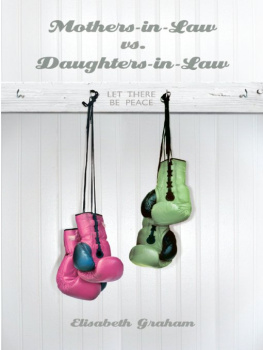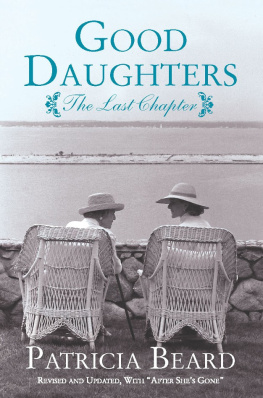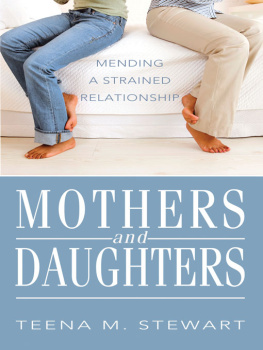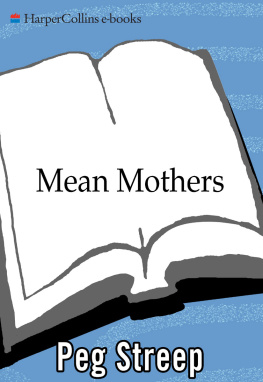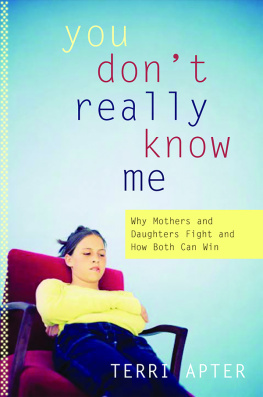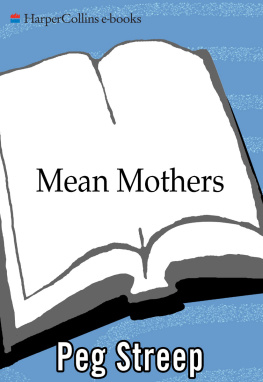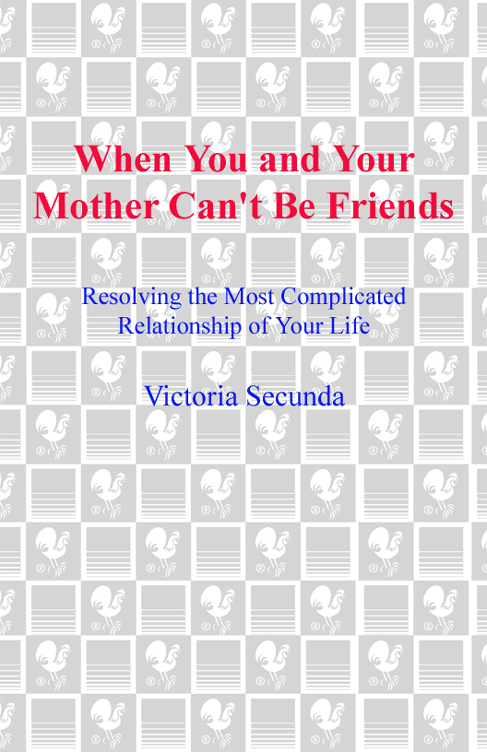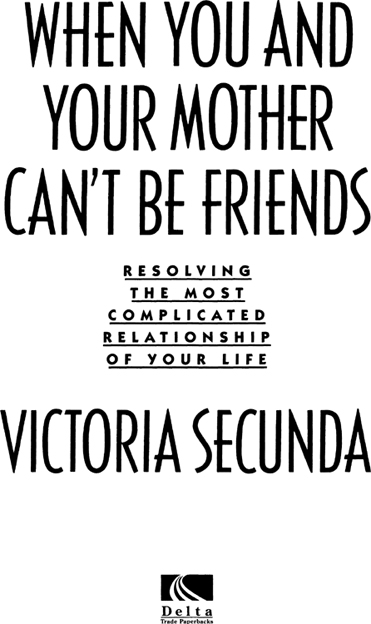Victoria Secunda - When You and Your Mother Cant Be Friends: Resolving the Most Complicated Relationship of Your Life
Here you can read online Victoria Secunda - When You and Your Mother Cant Be Friends: Resolving the Most Complicated Relationship of Your Life full text of the book (entire story) in english for free. Download pdf and epub, get meaning, cover and reviews about this ebook. year: 2009, publisher: Random House Publishing Group, genre: Children. Description of the work, (preface) as well as reviews are available. Best literature library LitArk.com created for fans of good reading and offers a wide selection of genres:
Romance novel
Science fiction
Adventure
Detective
Science
History
Home and family
Prose
Art
Politics
Computer
Non-fiction
Religion
Business
Children
Humor
Choose a favorite category and find really read worthwhile books. Enjoy immersion in the world of imagination, feel the emotions of the characters or learn something new for yourself, make an fascinating discovery.

- Book:When You and Your Mother Cant Be Friends: Resolving the Most Complicated Relationship of Your Life
- Author:
- Publisher:Random House Publishing Group
- Genre:
- Year:2009
- Rating:5 / 5
- Favourites:Add to favourites
- Your mark:
When You and Your Mother Cant Be Friends: Resolving the Most Complicated Relationship of Your Life: summary, description and annotation
We offer to read an annotation, description, summary or preface (depends on what the author of the book "When You and Your Mother Cant Be Friends: Resolving the Most Complicated Relationship of Your Life" wrote himself). If you haven't found the necessary information about the book — write in the comments, we will try to find it.
From the Introduction:
The goal of this book is to help readers achieve that separation so that they can either find a way to be friends with their mothers, or at least recognize and accept that their mothers did the best they couldeven if it wasnt good enoughand to stop blaming them. Among the issues to be covered:
To understand how a daughters attachment to her mothermore so than her relationship with her fathercolors all her other relationships, and to analyze why it is more difficult for daughters than sons to separate from their mothers, as well as why daughters are more subject than sons to a mothers manipulation
To recognize the difference between a healthy and a destructive mother-daughter connection, and to define clearly the bad mommy, in order to help readers who have trouble acknowledging their childhood losses to begin to comprehend them
To conjugate what I call the Bad Mommy Taboowhy our culture is more eager to protect the sanctity of maternity than it is to protect emotionally abused daughters
To describe the evolution of the unpleasable motherin all likelihood, she was bereft of maternal love as a childand to recognize the huge, and often poignant, stake she has in keeping her grown daughter dependent and off-balance
To illustrate the consequent controlling behaviorin some cases, cloaked in fragility or good intentionsof such mothers, which falls into general patterns, including: the Doormat, the Critic, the Smotherer, the Avenger, the Deserter
To understand that the daughter has a similar stake in either being a slave to or hating her motherthe two sides of her depen dency and immaturity
To illustrate the responsive behaviorand survival mechanisms of daughters, which is determined in part by such variables as birth rank, family history, and temperament, and which also falls into patterns, including: the Angel, the Superachiever, the Cipher, the Troublemaker, the Defector
To show how to redefine the mother-daughter relationship, so that each can learn to see and accept the other as she is today, appreciating each others good qualities and not being snared by the bad
Finally, to demonstrate that a redefined relationship with ones motheradult to adultfrees you from the past, whether that re definition ultimately results in real friendship, affectionate truce, or divorce.
Victoria Secunda: author's other books
Who wrote When You and Your Mother Cant Be Friends: Resolving the Most Complicated Relationship of Your Life? Find out the surname, the name of the author of the book and a list of all author's works by series.

